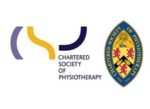Your Condition: Your Treatment
Shoulder Pain
Your guide to different shoulder conditions.
Please 'click' the name of the condition or treatment to reveal more information
Click here for an over view of Shoulder Problems
The shoulder is one of the most common joints to cause pain. It accounts for thousand of days off work and yet many people never gain a specific diagnosis.
Common Conditions
Common conditions include Frozen Shoulder, Shoulder Impingement, Burisitis, Rotator Cuff Tendinopathy and Osteoarthritis.
Treatment Specific for Condition
Given the variation in shoulder problems a diagnosis is essential if the best treatment is to be administered.
An unfortunate, but common problem occurs when a person has an injection for 'shoulder pain' when their real diagnosis is a tendon tear. This is the wrong treatment.
Ultrasound Scan
The fastest and easiest way to help determine a true diagnosis is via clinical examination combined with ultrasound scan.
We can help determine what brings on a persons pain and then look directly at the condition of the tissues involved.
Injection Therapy
There are different types of medication for different conditions. Frozen shoulder responds well to Cortico steroid injections followed by Hydro-distention.
Chronic rotator cuff tendinopathy can be helped with PRP and long term management of osteoarthritis can be improved with hyaluronic acid.
For a complete review of different medications please visit the Injections page.
Treatment specific information
Please click on your specific diagnosed problem to review what treatments could help. If you do not know what your problem is then please book an appointment at Injection Clinic.
Shoulder Impingement
Shoulder impingement is a very common condition that can elicit a strong pain response when the arm is elevated.
The pain can be felt anywhere along the arm and shoulder.
It is often a condition associated with bursitis and rotator cuff tendon irritation. The bursa and or tendons becoming strained and compressed during elevation of the arm.
Shoulder Impingement Treatment
Treatment for shoulder impingement depends more on the specific reason why the shoulder hurts when elevated. If the bursa is enlarged then cortico-steroids are a good solution. Hyaluronic acid can also be considered. If the rotator cuff is damaged then PRP injections can promote repair.
Exercises to correct the movement of the joint are essential. These exercises need to be tailored to correct identified weakness and dysfunction that typically occurs in the with scapular stability.
Frozen shoulder
Frozen shoulder often affects a person without there being any trauma. The onset is gradual with a developing stiffness and extreme pain. The pain affects sleep and any sudden movements can take a persons breath away.
We don't know why 'frozen shoulder' starts, but it seems as if there is an excessive immune response which in turn causes the joint capsule to inflame and literally stick together. This limits movement.
The condition last for over a year, but the worse pain happens in the first 6 months.
Frozen shoulder Treatment
Treatment for frozen shoulder. To help ease resting pain guided capsular injections of Cortico-steroid provide good relief; but not a cure.
High volume injections to expand the joint capsule can gain some additional movement and further help progress recovery.
Forcing the joint to move will not help the situation.
Gentle movements and exercises to maintain strength when combined with the anti-inflammatory injections provide best management. The rest of the recovery is simply the passage of time.
Shoulder Osteoathritis
Shoulder osteoarthritis can affect two joints. The ball and socket joint (Glenohumeral) and the collar bone (ACJ / Acromioclavicular Joint).
Symptoms of stiffness and reduced range of movement are common.
There is often pain on rest and in particular lying on your side can disturb sleep. Specific diagnosis is again essential to determine best treatment.
Treatment for shoulder osteoarthritis
Treatment for shoulder joint arthritis typically involves guided injections and exercise rehabilitation.
Injections can be guided into the Glenohumeral joint or ACJ dependant on diagnosis. If there is an increased inflammatory reactions then steroids are used. Hyaluronic acid is an excellent option for joint lubrications and long term management.
Shoulder Bursitis
Shoulder bursitis is a common condition that can cause a lot of pain. Typically the pain is worse on shoulder elevation and any movements out to the side.
The bursa is thin fluid sac that helps the shoulder joint and tendons glide under part of the shoulder blade (acromium).
To correctly diagnose bursitis an ultrasound scan is needed. It is important that the condition is not confused with a torn rotator cuff tendon, as the treatment for this condition is different.
Shoulder Bursitis Treatment
Treatment for shoulder bursitis mainly involves suppression of the inflammatory process within the bursa. Guided cortico-steroid injections provide an excellent initial outcome (see the picture of the needle entering the bursa).
After injection it is essential to correct the causative factors; these often involve problems with posture and movement patterns. There are times when the diagnosis reveals bony and tendon changes requiring further treatment which can involve surgery.
Torn Rotator Cuff
Tears to the rotator cuff tendons are unfortunately quite common. Most occur as part of degenerative changes.
When the cuff is worn normal daily activities such as shaking a bed sheet or gardening can cause a final strain that breaks the tendon tissue.
Once torn, along with an experience of pain, the individual may have difficulty lifting their arm above their head and picking up objects such as a kettle.
Rotator cuff tears can also occur in sporting/ younger people, but these tend to involve higher levels of impact and trauma.
Rotator Cuff Treatment
The management of a torn rotator cuff tendon depends on the severity of the tear and the condition of the torn tendon.
If the tendon is not degenerative then a surgical repair can be considered if the diagnosis is quickly made and the person has access to a surgeon is soon after the trauma.
With degenerative or small tears most management is focused on exercise rehabilitation. Gentle, but progressive exercises typically provide a good functional outcome. Patience is required because the process takes several months.
New Patient Appointments
Examination
and
Ultrasound Scan
£90


